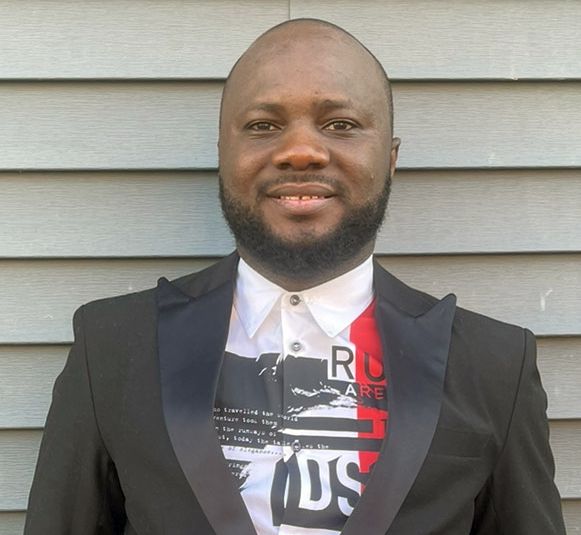I met Samu Tona on the first day of the rest of his life. It was September 2017. Just days before, they’d fled their native Angola, where crime rates were on the rise, politically motivated killings had become commonplace. “There is so much insecurity there,” he said. “It’s dangerous, basic human needs are not being met, unemployment is high. Every day, people are dying from starvation.”
As bad, ongoing violence had decimated the economy, making it impossible for Samu to provide for his family. A friend told them Maine was a place where immigrants thrived, so they left behind family, friends and boarded a plane for America.
They flew into New York’s LaGuardia Airport and took a bus to Auburn, intending to call a friend for a ride. Then Samu’s phone died. He was fluent in Portuguese and French—but not English. With no way to ask for help, he and his wife were left stranded in the snow for nine hours until a kind, French-speaking stranger came along and lent Samu her phone. Thirty minutes later, Samu walked through the doors of the Immigrant Resource Center of Maine where I worked as a volunteer supervisor.
Given his nine hours in the snow, it would be understandable if Samu felt defeated. But that was not the case. He was enamored with the snow, which he’d never seen. He marveled at the diversity of languages being spoken at our center. And he was incredibly grateful for the information and support we offered to him, including a map of Lewiston and some basic guidance about where to look for housing and work.
Two days later, he returned to present me with a gift, a colorful dashiki he’d brought from home. “You are so nice and welcoming, I want to express my thanks,” he said. We exchanged numbers and have remained ever since. When I asked him how he stayed so positive, he told me, “You have to trust yourself and fight for the life you want.”
And he has. Over the last five years, I’ve had the pleasure of witnessing Samu transform from a gracious newcomer into a hard-working, well-connected Mainer. In that time, he learned English and now speaks six languages. This, among other things, has made him an asset to our community.
Samu’s multilingual skills have made him one of the most valuable volunteers at the public health coalition where I work. He helps patients fill out paperwork in Portuguese, French, Spanish and the various dialects spoken in Angola and the Democratic Republic of Congo. He also helps to staff health care resource events.
His multilingual skills have also aided him professionally. Four years ago, he began working in labor production at Tyson Foods. Today, he’s a production supervisor. “Because I speak a lot of different languages, I can communicate with and help a lot of different people who work there,” he explained.
When the pandemic hit, several of Samu’s coworkers tested positive for COVID-19. I feared for his safety. But after the plant reopened with new safety measures in place, Samu was right back at work. Just like the 3.8 million other immigrants who are essential workers in the U.S. food sector, according to the immigration nonprofit New American Economy. In fact, immigrants like Samu account for nearly 30% of the food processing employees that companies like Tyson depend on to feed American families. “When I got my first promotion, my boss told me he believed in me,” Samu told me. “I never forgot that. I won’t let him—or the families we feed—down.”
These days, Samu doesn’t fear to leave the house each morning. He’s thousands of miles from the country where he was born, but Lewiston is very much his home. “Lewiston is a quiet, safe, good place to raise a family,” he tells me.
In some ways, Lewiston has allowed Samu to be fully himself: generous with his talents and community-minded. When I was having car problems, Samu loaned me his own Mazda so I could get to work. He’s raising his two American-born kids to have that same generous spirit—and without fearing for their safety. That, itself, is extraordinary.
Héritier Nosso is a health promotion coordinator and community organizer in Lewiston.
Send questions/comments to the editors.



Comments are no longer available on this story